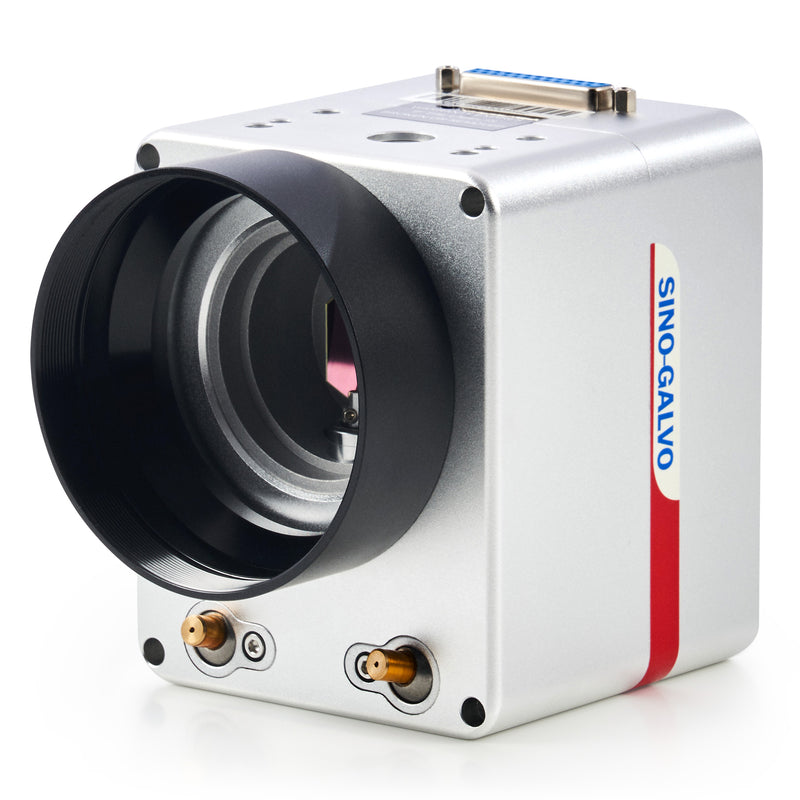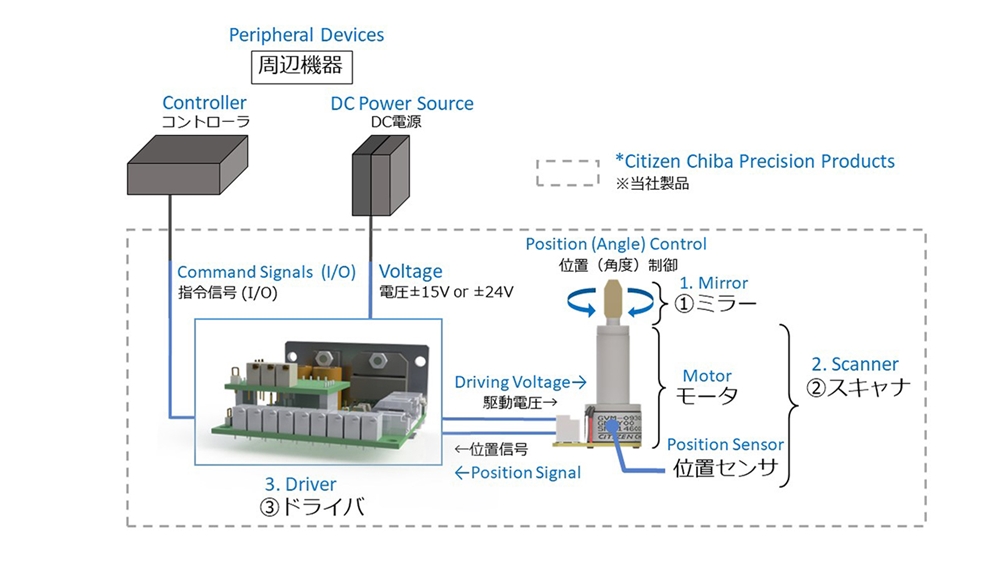Just How a Galvanometer Scanner Enhances Efficiency in Laser Scanning Technologies
The combination of galvanometer scanners in laser scanning technologies represents a pivotal development in precision engineering. By assisting in quick and exact modifications of laser beam of light instructions, these gadgets considerably improve operational performance across different applications, from medical imaging to industrial engraving.
Understanding Galvanometer Scanners
A galvanometer scanner is an innovative tool that leverages electromagnetic concepts to attain specific angular movement of mirrors or various other reflective surface areas. These scanners run with the interaction of an electric present and an electromagnetic field, enabling exact and quick placing. This technology is crucial in applications requiring high-speed scanning, such as laser inscription, optical interaction, and clinical imaging.

Galvanometer scanners are frequently identified by their fast reaction times and high angular resolution, making them optimal for applications that demand quick activities and accurate placing. Their dependability and efficiency make them a vital part in modern-day laser scanning technologies, adding substantially to improvements in various fields, consisting of manufacturing, medical care, and telecommunications.
Mechanism of Laser Beam Control

The control device counts on closed-loop feedback systems that continuously monitor the light beam's setting. The signals from optical sensors provide real-time information to the control system, allowing for quick changes to maintain precision. This is essential in applications where even minor variances can jeopardize the quality of the check or etching.
Additionally, the galvanometer's response time is extremely important; high-speed electric motors make it possible for swift motions, guaranteeing that the laser beam can quickly map complicated patterns or carry out complex procedures. The assimilation of digital signal handling additionally improves the responsiveness and accuracy of the galvanometer scanner. Generally, the mechanism of laser beam of light control via galvanometer scanners exemplifies the fusion of innovative design and innovation, generating high-performance end results in laser scanning applications.
Benefits of Boosted Accuracy
Improved precision in laser scanning technologies uses substantial benefits across different applications, from commercial production to clinical treatments. The assimilation of galvanometer scanners permits very exact light beam positioning, which is essential for jobs requiring meticulous detail. This enhanced accuracy ensures that the laser can target particular areas with minimal discrepancy, resulting in premium top quality end results.
In commercial contexts, accurate laser scanning results in improved product uniformity and minimized material waste. Components manufactured with high precision are less most likely to need rework, thus enhancing efficiency and minimizing operational prices. In medical applications, the precision of laser treatments can significantly impact patient end results. In laser surgical procedure, exact targeting decreases damages to surrounding cells, leading to quicker healing times and less problems.
Moreover, boosted precision helps with sophisticated applications such as 3D imaging and microfabrication, where also minute inaccuracies can lead to significant mistakes. By offering repeatable and reputable laser positioning, galvanometer scanners add to the overall effectiveness and efficiency of laser systems. In summary, the benefits of boosted accuracy not only enhance functional efficiency yet also elevate the requirements of high quality and security in numerous sectors.
Applications in Numerous Industries
The versatility of galvanometer scanners in laser scanning innovations extends throughout numerous industries, each taking advantage of the accuracy they provide. In the medical field, these scanners are essential in applications such as laser surgical treatment and imaging, permitting for very exact targeting of cells while decreasing damages to surrounding locations - galvanometer scanner. Their rapid reaction and fine resolution are crucial in producing premium results
In the manufacturing field, galvanometer scanners boost procedures like laser engraving and cutting. Their capacity to swiftly see here route laser light beams onto surface areas allows effective assembly line, improving rate and precision in developing complex layouts or components.
The automobile industry additionally maximizes galvanometer technology for quality control and examinations (galvanometer scanner). By utilizing high-speed scanning, suppliers can identify flaws in materials or assemblies, making sure that items fulfill strict standards
Furthermore, in the amusement market, galvanometer scanners are used in laser light programs and screens, providing dynamic visual experiences with precise control over laser activities.
Future Trends in Laser Scanning
Arising modern technologies are poised to change the landscape of laser scanning, with galvanometer scanners at the leading edge of this makeover. As industries significantly require accuracy and efficiency, the advancement of galvanometer innovation will certainly drive considerable advancements in laser scanning applications.
Future fads show an expanding integration of expert system and artificial intelligence algorithms, which will certainly improve information refining capabilities and automate decision-making in real-time. This harmony will certainly permit a lot more innovative evaluation of about his scanned data, bring about improved accuracy in applications such as 3D modeling and self-governing navigating.
Moreover, the miniaturization of elements and the advancement of innovative products will certainly contribute to lighter, much more mobile laser scanning systems. This transportability will increase the reach of laser scanning technologies into previously inaccessible settings, such as remote surface and intricate architectural rooms.
The increase of enhanced fact (AR) and virtual fact (VIRTUAL REALITY) applications will certainly additionally form the future of laser scanning. By incorporating galvanometer scanners with AR and virtual reality, customers will certainly profit from immersive experiences that improve visualization and job preparation.
Final Thought
To conclude, galvanometer scanners play a critical function in optimizing laser scanning modern technologies via their precise control of light beam instructions and fast angular modifications. The combination of sophisticated responses systems and optical sensing units dramatically improves functional rate and precision, leading to boosted results in applications such as laser engraving and medical imaging. As industries significantly embrace these modern technologies, the recurring innovations in galvanometer scanner designs are anticipated to more raise efficiency requirements and broaden application opportunities.
The assimilation of galvanometer scanners in laser scanning technologies stands for a crucial advancement in precision design. Generally, the system of laser beam control with galvanometer scanners exemplifies the blend of Read More Here sophisticated engineering and modern technology, generating high-performance results in laser scanning applications.
By giving repeatable and trusted laser positioning, galvanometer scanners add to the overall performance and efficiency of laser systems.The versatility of galvanometer scanners in laser scanning modern technologies extends throughout numerous industries, each profiting from the accuracy they offer.In conclusion, galvanometer scanners play a pivotal function in maximizing laser scanning innovations via their precise control of beam instructions and rapid angular modifications.